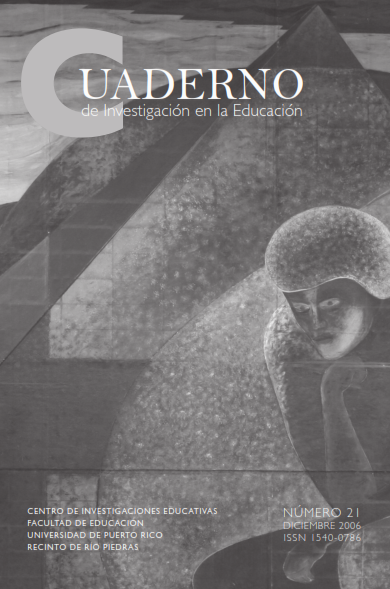Abstract
This article presents the potential of role-playing video games as instructional tools in the English as a Second Language (ESL) classroom. It discusses how this type of video game exposes students to native speech, requiring them to listen, as well as read and even interact verbally with the characters. It also mentions some well-known and widely recognized teaching approaches which postulate and indirectly support the use of video games in the ESL classroom. It adds some examples of an experiment carried out in the University High School (UHS) regarding video games and the application of several elements of literature. It then concludes with statements from two professionals who, as students, worked as tutors for the University of Puerto Rico, Bayamon Campus, that claim to have learned English through video games.
How to cite:
Quijano-Cruz, J. (2006). Los Video games and the ESL acquisition process. Cuaderno de Investigación en la Educación, 21, 117-122. Retrieved from https://revistas.upr.edu/index.php/educacion/article/view/13239

This work is licensed under a Creative Commons Attribution-NonCommercial 4.0 International License.
Copyright (c) 2006 Cuaderno de Investigación en la Educación

